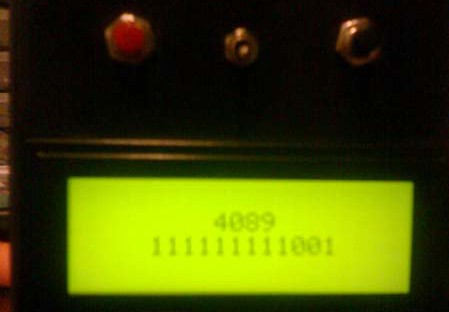
Hacking with Gum got their hands on one of the persistence of vision display fans that Cenzic was giving away at Blackhat this year. It’s not the biggest fan-based POV display we’ve seen but it’s still a fun device to tinker with. They hacked into the EEPROM on the device in order to change the message the fan displayed.
This is very similar to the other EEPROM reading/writing we’ve seen recently. Hacking with Gum read the data off of the EEPROM and then disassembled it to discover how the message data is stored on the chip. This was made easier by noting the messages displayed when the fan is running. The first byte of data shows the number of words in the message, then each chunk of word data is preceded by one byte that represents the number of letters in that work. Data length was calculated based on the number of pixels in each display character. Once he knew the data-storage scheme, it was just a matter of formatting his own messages in the same way and overwriting the chip.
This is a great write-up if you’re looking for a primer on reverse engineering an unknown hardware system. If you had fun trying out our barcode challenges perhaps deciphering EEPROM data from a simple device should be your next quest.
[Thanks James]














